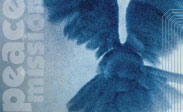


   |
|
HENRI LA FONTAINE
Year: 1913 Nobel Peace Prize Cause: For his efforts to create peace. Biography La Fontaine, Henri , 1854–1943, Belgian jurist and statesman. A senator from 1894 to 1936, he headed the International Peace Bureau from 1907 and was awarded the 1913 Nobel Peace Prize. His writings on international law were extensive. In 1877 at the age of twenty-three, La Fontaine registered as counsel with the Brussels Court of Appeal after reading law at the Free University of Brussels, from which he later received a doctorate in law. For the next sixteen years, he practiced law, becoming one of Belgium's leading jurists; wrote a technical work on the rights and duties of contractors of public works (1885) and collaborated on another concerning counterfeiting (1888); began his long work in the cause of peace; and participated in liberal reform causes. Throughout his career in the Senate he showed an abiding interest in education, labor, and foreign affairs. As a freshman senator, he introduced a bill to reform primary education and in his last year in the Senate spoke on the budget for public instruction. In labor legislation, he submitted a bill on mine inspection in 1897 and in 1926 supported the adoption of the eight-hour day and forty-hour week. In foreign affairs, he spoke almost every year on the foreign affairs budget, asked the Belgian government to demand arbitration between the combatants of the Boer War (1901), introduced a bill approving the treaty of obligatory arbitration with Italy (1911), and gave his legislative support to the League of Nations, the establishment of an economic union with Luxembourg, the Locarno Pacts, the Kellogg-Briand Pact, disarmament, and the legal means of settling international disputes. La Fontaine's talents and energy led him to explore many interests. A mountaineer, he wrote about climbing, compiled an international bibliography of «Alpinism», and served as president of the Club alpin belge. He translated portions of Wagner's operas, published essays on American libraries and the status of American women, founded the review La Vie internationale, lectured to adult education classes on modern movements in the arts, served on the Brussels City Council from 1904 to 1908, and even, in his young manhood, produced a volume of poetry. Henri La Fontaine lived to see his native Belgium invaded once again but not to see it liberated, for he died in 1943. Related Links |